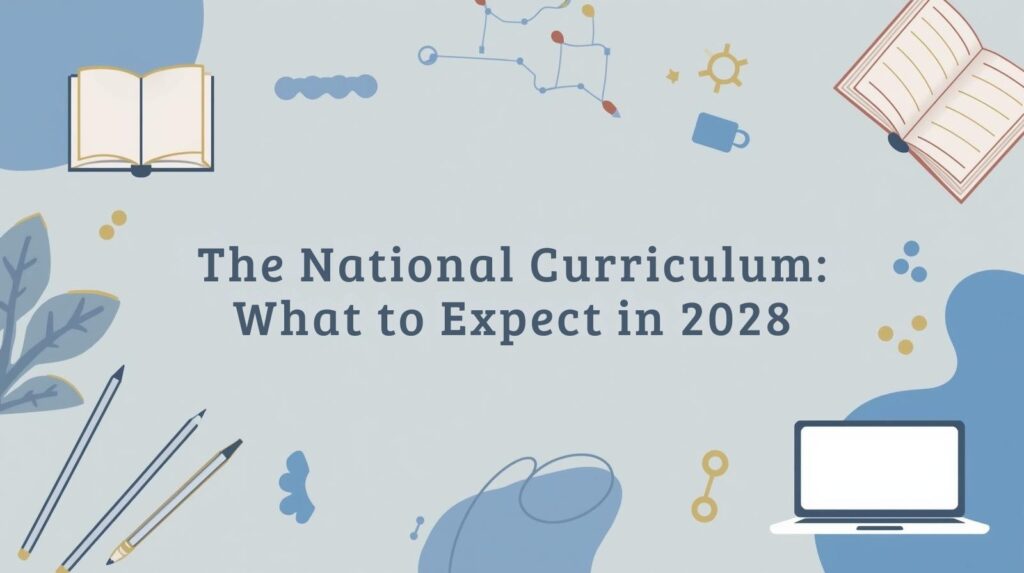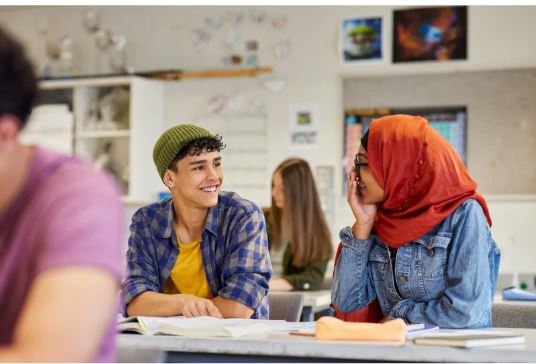The New National Curriculum: What to Expect in 2028

In This Article
- ARTICLE
- November 6, 2025
- 8:15 am
Education in England is preparing for one of its most wide-ranging updates in years. Following an extensive review, a new national curriculum is set to launch in September 2028, marking a shift towards broader learning, life skills, and digital readiness. Here is a look at the key changes and what they mean for students, teachers, and schools.
A new beginning for schools in 2028
The Department for Education will publish the final details of the new curriculum by spring 2027, giving schools over a year to prepare before teaching begins. This preparation period
will allow teachers to receive training, update lesson plans, and ensure resources are ready for the start of the 2028 academic year.

The end of the English Baccalaureate (EBacc)
The government plans to remove the EBacc performance measure, which has heavily influenced school subject choices for more than a decade. Its removal will give schools greater flexibility to offer a balanced mix of subjects, rather than focusing mainly on English, maths, science, humanities, and languages.
Broader and more balanced learning
The new framework will support a wider range of academic, creative, and technical subjects. This aims to give pupils more freedom to pursue their interests while still gaining essential knowledge. It also reflects a growing recognition that creativity, problem-solving, and practical skills are just as important as exam performance.
Lighter and more focused GCSEs
The review recommends reducing content and exam time in some GCSE subjects. The goal is to make assessments more meaningful and less dependent on memorisation. This change is expected to create space in the timetable for subjects such as art, music, design, and physical education, which have been squeezed in recent years.
Citizenship and life skills from an early age
Citizenship education will become compulsory in primary schools. Pupils will learn about topics such as financial literacy, digital safety, sustainability, and civic responsibility. The hope is to equip young people with practical life skills and an understanding of how they can contribute positively to society.
Stronger focus on communication
A new oracy framework will be introduced to help pupils develop confidence in speaking and listening. Lessons across all subjects will include opportunities for discussion, debate, and clear verbal expression. This shift recognises that strong communication skills are vital both in education and in everyday life.

Preparing for a digital future
Technology education will be modernised. The current Computer Science GCSE will be replaced by a broader computing qualification covering digital literacy, data handling, and artificial intelligence. For older students, a new Level 3 qualification in AI and data science will be developed to reflect the growing importance of digital industries.
Equal access to science
Every pupil will be given the option to study triple science at GCSE, meaning separate qualifications in biology, chemistry, and physics. This entitlement aims to open more pathways into higher-level STEM studies and ensure that all students, regardless of background, have access to advanced science learning.
A curriculum that represents modern Britain
Diversity and inclusion will play a stronger role in the new framework. The content of lessons will better reflect the cultural, historical, and social diversity of England, helping students see themselves represented in what they study and encouraging respect for different perspectives.
Enrichment and well-being for every pupil
Alongside academic learning, schools will be required to provide access to arts, sports, outdoor activities, volunteering, and community engagement. This “core enrichment entitlement” is designed to support wellbeing and creativity, recognising that education is about developing the whole person, not just exam results.
What this means for parents and teachers
For parents, these changes signal a more rounded approach to education. The focus is shifting from memorising facts to developing confidence, curiosity, and key life skills. Schools will be encouraged to give children space to think independently and find joy in learning.
For teachers, the next few years will involve preparation and training to align with the new curriculum goals. While this transition will take effort, it offers an opportunity to refresh classroom practice, reduce assessment pressure, and place greater emphasis on creativity and discussion.
What this means for homeschoolers
Homeschooling families will also feel the effects of the new curriculum, even though they are not required by law to follow it exactly. The updated national framework will give home educators a clearer structure and modernised learning goals to draw upon when planning lessons. With more emphasis on digital literacy, life skills, and communication, home schoolers can expect new resources and exam specifications that better match real-world learning. The reduced exam load and broader subject options may also make GCSE preparation more flexible for private candidates, especially in creative and practical areas that were previously harder to access outside traditional schools.
What this means for online schools
Online schools are likely to benefit from many of the same curriculum updates, especially the focus on digital learning, communication, and independent study. The move toward a broader computing curriculum and stronger oracy skills fits naturally with online learning platforms that already use interactive tools, discussion-based lessons, and virtual collaboration. As the new curriculum takes shape, online schools will have the chance to showcase how flexible, technology-led teaching can meet national standards while also offering a more personalised learning experience for students studying from home.
A step towards a balanced future
The 2028 national curriculum marks a clear move away from the narrow and test-driven approach of recent years. It aims to balance academic excellence with creativity, communication, wellbeing, and real-world skills.
If implemented successfully, this reform could help schools prepare pupils not just for qualifications, but for life in a rapidly changing world.
Asra Hub will continue to share updates as the 2028 curriculum develops, helping families and educators stay informed throughout the transition.
